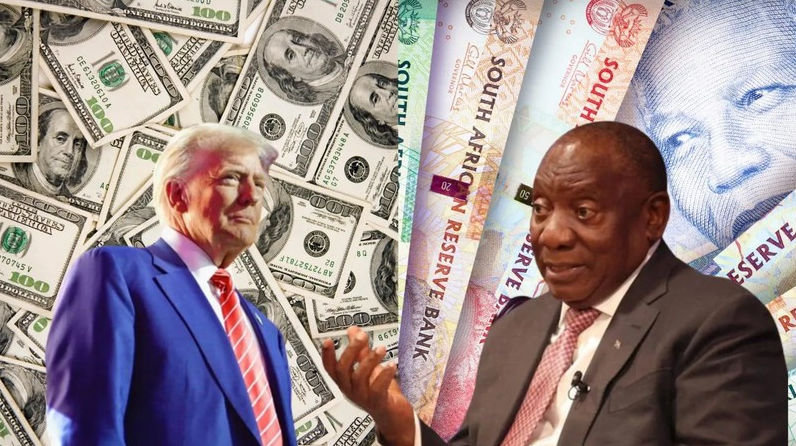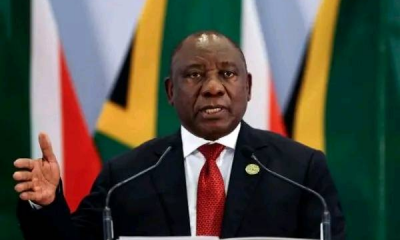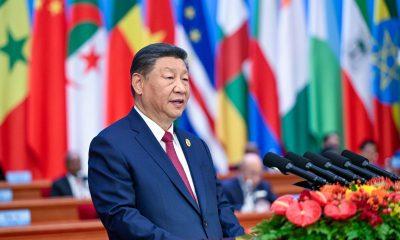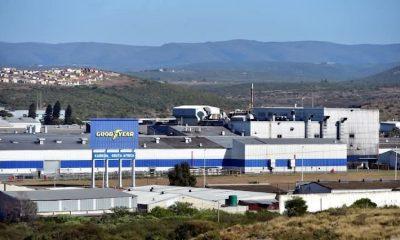Business
Trump Targets South Africa with VAT Tariffs, Threatening Trade Relations

US President Donald Trump is escalating tensions in the global trade arena with a new policy targeting countries, including South Africa, that levy Value Added Tax (VAT) on imports. The move, announced via Trump’s social media accounts on 17 February 2025, seeks to level the playing field in international trade, particularly with nations that impose VAT systems deemed punitive by the United States.
Trump’s New Tariff Strategy
Trump’s administration has long been critical of the VAT system, which he equates to a hidden tariff. In his latest policy statement, Trump declared,
“Whatever rate countries charge the United States of America, we will charge them. No more, no less.”
This new policy suggests a 15% tariff on South Africa’s exports to the US, in line with the country’s current VAT rate of 15%. South Africa, along with much of Europe, has imposed VAT on imported goods and services as a way to generate significant tax revenue, but this system has become a target for Trump’s “fairer trade” agenda.
Implications for South Africa’s Economy
The potential tariff escalation could have far-reaching consequences for South Africa’s export sector, as the United States remains a key trading partner. Since the introduction of AGOA (African Growth and Opportunity Act), South Africa has enjoyed preferential, tariff-free access to US markets. However, the current trade climate, combined with Trump’s stance on tariffs and trade barriers, puts this arrangement at risk.
AGOA is slated to end in September 2025, and if South Africa is excluded due to rising tensions with the US, it could face a heavier tariff burden on its products. This would make South African exports less competitive in the US, particularly in industries like machinery, electronics, and vehicles, which currently contribute significantly to South Africa’s import VAT revenue.
The VAT Impact on South Africa
In the 2023/24 financial year, South Africa’s Revenue Service (SARS) collected R263.2 billion in import VAT, accounting for 15.2% of the total tax revenue. Key industries contributing to this VAT collection include machinery and electronics, chemical products, and vehicles.
Interestingly, South Africa sources a significant portion of its imports from China and Germany, which collectively accounted for R128.8 billion of import VAT. While only 7.6% of import tax comes from the US, this figure could rise as Trump’s tariffs are imposed.
Potential Economic Risk
The suspension of AGOA would exacerbate South Africa’s economic challenges, leading to higher export costs and diminishing the competitiveness of South African goods in the US market. Economists warn that South Africa’s reliance on the US market and the AGOA benefits could result in a significant economic blow.
Moreover, the increased tariffs could have a cascading effect on job creation, particularly in sectors that are heavily dependent on US exports.
As Trump’s tariffs loom over South Africa, the country faces a trade battle that could severely impact its export market. AGOA’s expiration could further strain US-South African trade relations, especially as South Africa’s foreign policy continues to clash with US interests.
With tensions mounting, South Africa’s trade negotiators will need to explore alternative strategies to safeguard the country’s economic stability and preserve its market access to the United States.
What do you think of the potential impact of Trump’s tariff plan on South Africa’s economy?
Follow Joburg ETC on Facebook, Twitter , TikTok and Instagram
For more News in Johannesburg, visit joburgetc.com



























